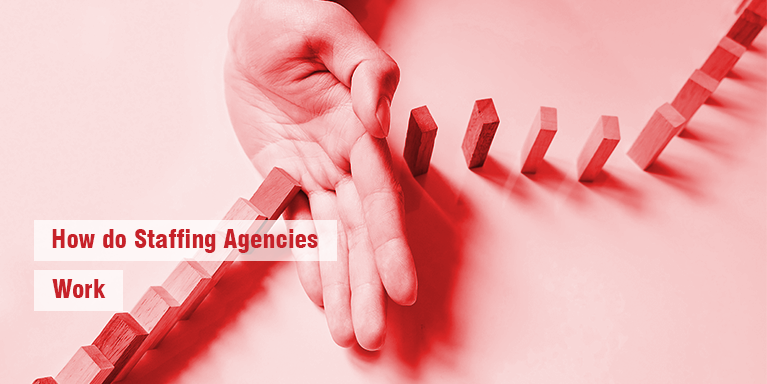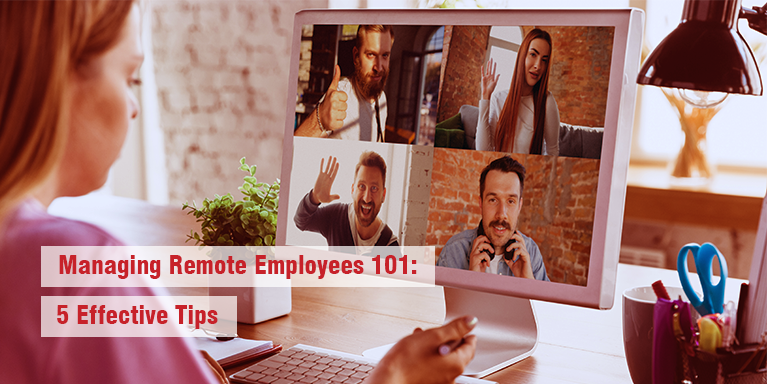
It’s time to find that ideal candidate, the “purple squirrel,” as they say in the recruiting industry, but you’re confused about where to start. You’ve been told you might find it beneficial to work with a Staffing Agency, but you’re not convinced. Every time you ask yourself, “How do staffing agencies work?” you become more confused than ever.
It’s time to clear your confusion. Your business deserves the best employees, but picking them a large pool of candidates requires expertise and time. That’s where the Staffing Agencies come in. They have mastered the skills to select candidates that resonate with your Company. Today, we help many employers with the hiring process, from start to end.
Role of Staffing Agencies
Staffing agencies hire employees based on the employer’s requirements. Using their expertise, research, and contacts, they hire for various positions (full-time, contract, and part-time). They can be industry-specific or hire for multiple industries.
From job opening to hiring, here is how staffing agencies work:
Employers connect with the Agency
Employers contact the Staffing Agency when they need to hire a new employee. They specify the job requirements, total employees needed, the charges they will pay, and the kind of job opening (part-time or full time). Based on this information, the agency prepares a job description, markets it on its website, and starts the candidate-hunt. The Agency can use several search methods, ranging from Social Media to Other Professional Networks.
Candidates apply
There are many approaches Candidates take to secure a job. Browsing job boards and Staffing Agencies’ sites and connecting with them are the common ones. The Staffing agencies review the skills and background of the applicants and determine if they’re suitable for the opening. The agency shortlists and proceeds with the candidates it deems suitable for the opening. It manages the entire hiring process and also gives feedback to the candidates on how to improve.
Interview
After shortlisting the candidates, the agency performs screening interviews. Employers may participate in the interviews if they’re looking for a specific skill-set that the Staffing Agency may not determine. Staffing agencies introduce the shortlisted candidates to the Employers, who decide which candidates to select.
Contracts and pay
The agencies manage most of the paperwork, such as handling the candidates’ contracts and discharging them when necessary. They handle employment taxes, including Social Security and payroll. Employers can save time & energy by leveraging staffing agencies’ services. For temporary job openings, staffing agencies pay the employees directly. When the candidates get hired by the company for which they were part of a temporary job and did well, they take over the payroll.
If you still doubt what it’s like to work with a Staffing Agency, don’t worry. Here are the two most important questions about the Staffing Companies, answered.
Why Choose a Staffing Agency When I Can Hire Myself?
Staffing agencies allocate a hundred percent of their time, honing the skills required to source the best candidates. Usually, the HR department of a Company doesn’t have that kind of expertise. Plus, staffing agencies eliminate many of the search’s burdens, pre-screening, and usually interview candidates before sending them on to you. This saves you a lot of time and capital.
Do staffing agencies charge fees?
Staffing agencies charge fees to their clients for the amount of work the employee performs. Fees take many forms, including:
- Markups vary between 25% and 100% of the employee’s wages. The percentage differs according to factors like salary or location. For instance, with a 50% markup, if the employee’s salary is $10/hour, the employer might pay $15/hour to the agency.
- Agencies may also charge an extra fee on top of this percentage for filling the position. For temporary openings, it will be deducted regularly. However, it will be a one-time fee for permanent roles.
- For temp-to-hire contracts, which allow employers to retain the employee for a longer period, they negotiate and pay a contract buy-out. It is essential to note that temp-to-hire doesn’t assure permanent employment after the temporary period but gives the possibility of transition.
Final Words
By understanding the above parameters, we hope you’ve gotten an idea whether joining hands with a staffing agency decreases risk or further imposes it. Only the right employees can help your business grow, and only the right staffing agency can help you discover them smoothly. So, take your call accordingly!

